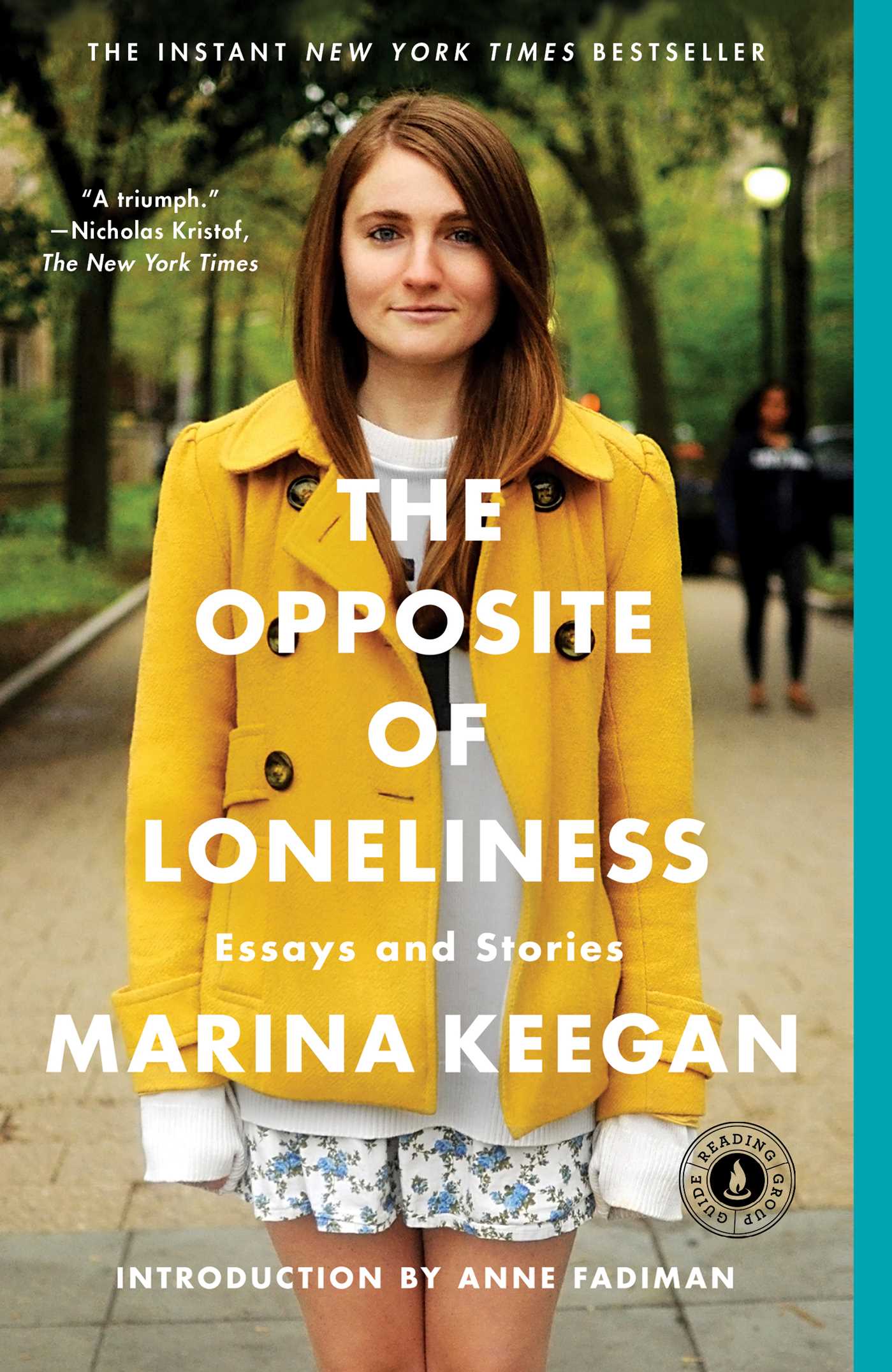Marina Keegan was an American author best known for her essay “The Opposite of Loneliness” which she wrote for Yale University’s school paper. It was for their commencement exercises in 2012. She died at 22, five days after she graduated magna cum laude from Yale University.
The Opposite of Loneliness: Essays and Stories is a collection of her works, published early last year. The book quickly became a bestseller. After reading the book, you’ll realize why.
Marina’s stories must be heard and shared. Marina’s writing style, wit, and sense of humor are perceivable in her stories. The book is something for everyone to read, no matter what generation you belong.
I loved most of the stories; the non-fiction stories were excellent above all. In fact, I think I like them more than the fictional essays.
Fiction
Cold Pastoral is a story about love and death. It’s about truth, lies, grief, and fears. The female narrator’s new boyfriend dies. She’s unable to find her place in the boy’s life, or should I say, death. The story got even more complicated when she met the ex-girlfriend and discovered that the kid has been keeping a diary. Wonderfully written, the story was intriguing, confusing yet enlightening at the same time.
The Ingenue is my favorite of all. It’s probably because I can relate to it so much. It’s a story of a woman visiting her boyfriend who has been away. It gives you a picture of what goes in the mind of a woman. And then there was a game of Yahtzee. I still think about it to this day. There’s still so much I don’t understand about it.
“Part of me probably knew it was coming because as soon as I shut the door, I started crying. I le my head hang forward and press against the streering wheel but after a few sobs I sat up and stopped. I texted five or six friends from the city. Small things like “hey how’s your work?” or “ugh I want to kill this girl in Dan’s play”. I do that sometimes when I’m feeling lovely; it’s a strange and compulsive habit, but it usually works.”
Non-fiction
In Why We Care About Whales, you’ll realize how good of a non-fiction writer Marina is. Refreshing and witty, she’ll grab your attention and will make you think.

Against the Grain and Putting the Fun Back in Eschatology showed Marina’s flexibility. Against the Grain is about Marina’s life with celiac disease while the latter is about Eschatology, which is the study of the “end of the world.”
She said, “The thing is, I think we can make it. I think we can shove ourselves into spaceships before things get too cold. I only hope we don’t fuck things up before that. Because milliong of years is a long time and I don’t want to let the universe down.”
I Kill for the Money is an essay about Tommy Hart. Tommy is a sixty-three-year-old exterminator. It’s a beautiful story of a man and how people are naive and selfish. Tommy is a guy who loves his job, yet people who need him, and even his kid are embarrassed about the man’s profession. In the story, we find how Tommy puts on a mask to hide his true feelings.
“I’m honest, I’m never late, I respect people, I try my hardest, I’m friendly, I love my wife, I love my children,” “It’s just like, no one wants bugs around, so no one wants me around.” “I mean why do you think it’s unlabeled?” Talking about his truck. “Because people would be embarassed to hate it in their parking lots, that’s why”
Even Artichokes Have Doubts and Song for the Special were so enlightening and truthful.
In Even Artichokes Have Doubts, Marina wanted to understand the disturbing statistic she found that “around 25 percent of employed Yale graduates will enter the consulting or finance industry”.
“I think the best way to get skills to work for a non-profit is to work for a non-profit” “The answer people give about skills acquisition is very convenient”.
“Maybe it really is a fantastic way to gain valuable, real-world skills. And maybe everyone will quit these jobs in a few years and do something else. But it worries me. I want to watch Shloe’s movies and I want to see Mark’s musicals and I want to volunteer with Joe’s non-profit and eat at Annie’s restaurant and send my kids to schools Jeff’s reformed and I’m JUST SCARED about this industry that’s taking all my friends and telling them this is the best way for them to be spending their time. Any of their time. Maybe I’m ignorant and idealistic but I just feel like that can’t possibly be true. I feel like we know that. I feel like we can do something really cool to this world. And I fear — at 23, 24, 25 — we might forget.”
Eye-opener
The story is an eye-opener. It reminded me of my ideals and of what I’ve always wanted to do. And it is true that it is worrying. I am almost 30 now, and I’m far from the person I wish to be.
The essay Song for the Special is about privilege and making a difference. In it she said,
“Every generation thinks it’s special — my grandparents because they remember World War II, my parents because of discos and the moon. We have the Internet.” And then she said, “Everyone thinks they’re special — my grandma for her Marlboro commercials, my parents for discos and the moon. You can be anything, they tell us. No one else is quite like you. But I searched my name on Facebook and got eight tiny pictures staring back. The Marina Keegans with their little hometowns and relationship statuses.”
Thus, the world lost a dear soul when Marina passed away. The world needs more people like her.
The Opposite of Loneliness
Paperback
By (author) Marina Keegan
